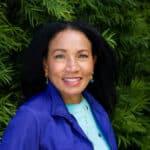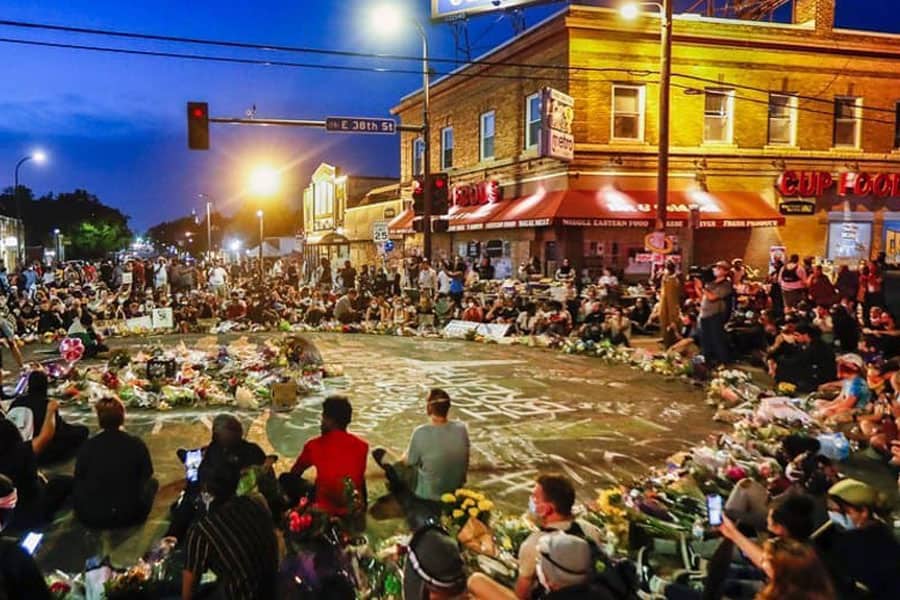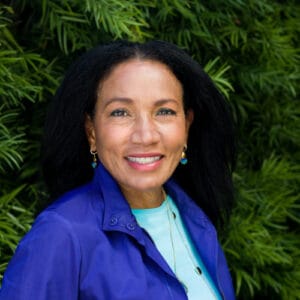This pandemic is a kaleidoscope of images, a swirl of feelings for many of us, especially among people of color who, according to ABC News, are 3 or 2.5 times more likely to know someone who has died than whites. Communities of color have also experienced COVID-19 in disproportionate numbers to our representation in the population. And because people of color are often in lower wage jobs and lack a financial cushion, these communities have also suffered more severe economic losses.
Last week’s events threw an incendiary device into an unstable peace created in the wake of COVID-19 fear, uncertainty, grief, fatigue, illness and death.
Explosive images bombarding communities of color and other Americans last week included: Amy Cooper’s threat to call 911 and tell police her life was being threatened by a black man when he’d merely asked her to leash her dog as required by city ordinance. The leisurely asphyxiation killing of George Floyd by a police officer as four fellow officers looked on and prevented civilian samaritans from intervening to save his life. The arrest of an Afro-Latinx CNN reporter Omar Jimenez, along with his Latinx and white colleagues, reporting on the exercise of free speech by anguished and angry Americans over the death of George Floyd. The characterization as “right” by the President and “kid glove” police treatment of white protesters with machine guns exercising their first amendment rights to ask the government to redress their grievances at being forced to shelter in place. That contrasts with the rapid escalation of rhetoric and physical aggression against diverse protestors who are variously being vilified as “thugs, lawless, or domestic terrorists” by government leaders. Our Commander in Chief also lobbed an errant match on the powder keg when he tweeted, “the shooting starts when the looting starts”.
I do not condone looting or violence.
My brother in Tampa was minutes away from a mall that was looted, near a gas station set on fire that could have killed thousands if it exploded. My sister, who cares for our mother whom we “rescued” from an assisted living facility that succumbed to COVID-19, had her car randomly shot at in the streets of Chicago (she was not hit) this weekend.
I have no love of violence as a survivor myself. But as Trevor Noah articulates in his video essay, when our leaders abuse power, the social fabric is weakened for us all.
The history of institutionally-sanctioned violence against men and women of color is burned deep into the collective memories as Americans, especially people of color. It is not history, but present day reality, for people of color whose bodies are being looted as Noah noted in his essay. The word lynching was used for the killing of people of color without due process in the past. But many people seem more horrified by looting than the killing of people of color by police, so Noah asks us to re-conceptualize this violence as looting instead. Ironically, this property metaphor may arouse an empathy that the humanity of victims of institutional violence, who were once chattel, can not call forth.
People of color have their bodies looted when government leaders and the judicial branch threaten to force them to work in meat packing jobs so others can buy meat the workers may not afford themselves. They have their bodies looted when infants and children are removed from their parents and jailed in for-profit detention centers perhaps never to be reunited. They have their bodies looted when they must feed and take care of others or clean in homes, places of business, or care facilities while they risk their own and family members’ health because they are not afforded PPE despite the essential nature of their work. As early as April 3, our African American Surgeon-General Dr. Jerome Adams tried to get anyone with a piece of cloth and two elastic bands to be able to protect themselves by making and wearing masks only to be undermined consistently by senior government officials.
I ask that we reflect on riots through the lens of Martin Luther King (“MLK”). He said and I concur that “A riot is the language of the unheard.” When abuse is unto death, and is not met with swift justice, it’s not difficult to understand why property and people of good will are no longer safe. Let us be allies to communities of all colors and women in these painful times. African Americans, LatinX, Asians, Native Americans, and immigrants and are suffering distinctly in this pandemic. Also let us understand that all Americans and the world share in the great suffering of this pandemic, particularly first-responders, police included, the poor, the incarcerated, the homeless, the elderly, the unemployed, and women. “In the end, we will not remember the words of our enemies, but the silence of our friends (MLK).”
I call on our leaders to administer true justice. Only justice will heal the wounds inflicted by the killers of George Floyd on all of us and by killers who abuse the institutional power granted them by us, the people.
All the police officers who stood by as Floyd’s life breath drained from his body should be charged as accomplices to the crime committed against George Floyd.
I also urge protesters to use new means that are appropriate to a pandemic. Let us not spread the scourge of COVID-19 deeper into our communities. A recent example of socially distanced prayer occurred during Ramadan in Germany in an IKEA parking lot. This beautiful moment of interfaith cooperation can serve as inspiration for us all. Communities throughout the US can gather at social distances, wearing masks and take a knee in protest. The aerial view of this moment would make a new image to add to our kaleidoscope of America.
And yes, there are signs of hope and true understanding. It is heartening to see police officers, in cities across the country where some of the worst violence has taken place, taking a knee before demonstrators to show their solidarity. In Denver, Atlanta, New York, and in smaller cities in Connecticut and Michigan, officers have prayed with and embraced protesters. Authentic acts of empathy, and the enactment of institutional accountability, will start a national process of healing.






